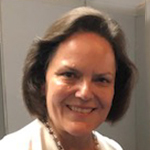By Kathleen Rose, vice president of the Rotary Club of Gilroy, California, USA
I attended the Rotary International Convention in Hamburg, Germany, in June, to widen my own leadership experience as I prepare to serve as club president next year. I was asked to present a breakout session entitled Women’s Leadership Skills: Strengthening Our Rotary Legacy. What an experience! Although I have been a scholar of leadership for many years, have written on the subject often, and have had the opportunity to speak nationally, it was a thrill to present to an international audience of Rotary leaders who are clearly motivated change agents.
If ever there were a time to focus on the work of leadership, the development of leadership skills, and the debate around qualified leadership, it is now. Especially for women. It’s time to deepen our commitment to Rotary’s values through service, innovation, and setting priorities that reflect the needs of our communities. We need to build new relationships that will strengthen the impact of Rotary worldwide.
Common attributes of women leaders
I have found that women leaders today who are ready to do the thoughtful work around change share the following attributes:
- They understand the importance of human connection away from technology and keep it as a priority.
- They are curious and creative and ask questions that lead to comprehension.
- They look beyond the obvious and provide solutions by using a systems-based ideology that help others stay engaged.
- They are unafraid of transparency in voice and action, and are willing to care for others with authenticity.
- They share their personal growth stories…but in alignment with the growth they experience in the workplace. Lessons are real and meaningful.
- They take purposeful actions and show emotional intelligence in practice, rarely apologizing for showing both strength and emotion in making key decisions.

Kathleen Rose
There are many examples of this type of leadership in the Rotary world. One of my favorite examples is Stephanie Woollard, founder and CEO of Seven Women. In 2006, Stephanie met with seven disabled women working in a tin shed in Kathmandu, and with the last $200 in her possession, paid for a trainer to teach the women how to produce products for sale locally and abroad. Her potential and leadership was recognized by Rotary in 2016 when she was accepted into the Rotary Peace Fellowship program. Stephanie took purposeful action based upon recognizing a need, and developed a solution that was sustainable with a supportable system that gained strength and momentum over time.
Steps to being a change agent
So what are the first steps for women in Rotary to achieve these goals for themselves and their clubs? To be a change agent, you must:
- First identify your values, assumptions, and beliefs about change.
- Next, believe in yourself, and know that you can motivate those around you with your voice, your passion about the community projects that your club selects, and your confidence as a Rotarian.
- Then, find a mentor and create your strength circle of those who support your leadership journey. Put yourself in environments where change is occurring and you can engage in a shared vision and dialogue about the impact of change … in other words, educate yourself and take risks!
Leadership is a practice. I have been a scholar of leadership for many years and I am still excited about the discoveries I am making in my own growth and development as a leader. As I prepare for my year as club president, I will reflect on the object of Rotary – to develop relationships as an opportunity for service. And I will continue to develop my ethical standards; enrich my personal, business and community life; and advance goodwill and peace throughout the world.
But I will do so through the lens of my personal leadership journey, applying the passion I have for change and the ways I know my club can achieve it through collective leadership. I look forward to continued growth as a leader!
https://blog.rotary.org/2019/08/28/how-women-lead-differently/
